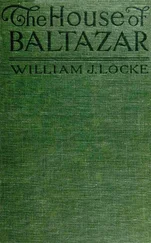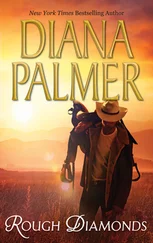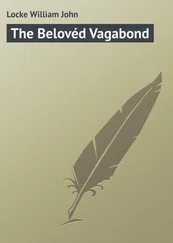William Locke - The Rough Road
Здесь есть возможность читать онлайн «William Locke - The Rough Road» — ознакомительный отрывок электронной книги совершенно бесплатно, а после прочтения отрывка купить полную версию. В некоторых случаях можно слушать аудио, скачать через торрент в формате fb2 и присутствует краткое содержание. Жанр: foreign_prose, на английском языке. Описание произведения, (предисловие) а так же отзывы посетителей доступны на портале библиотеки ЛибКат.
- Название:The Rough Road
- Автор:
- Жанр:
- Год:неизвестен
- ISBN:нет данных
- Рейтинг книги:4 / 5. Голосов: 1
-
Избранное:Добавить в избранное
- Отзывы:
-
Ваша оценка:
- 80
- 1
- 2
- 3
- 4
- 5
The Rough Road: краткое содержание, описание и аннотация
Предлагаем к чтению аннотацию, описание, краткое содержание или предисловие (зависит от того, что написал сам автор книги «The Rough Road»). Если вы не нашли необходимую информацию о книге — напишите в комментариях, мы постараемся отыскать её.
The Rough Road — читать онлайн ознакомительный отрывок
Ниже представлен текст книги, разбитый по страницам. Система сохранения места последней прочитанной страницы, позволяет с удобством читать онлайн бесплатно книгу «The Rough Road», без необходимости каждый раз заново искать на чём Вы остановились. Поставьте закладку, и сможете в любой момент перейти на страницу, на которой закончили чтение.
Интервал:
Закладка:
“Isn’t he quite capable of taking care of himself?” asked Peggy.
“I’m not so sure,” replied Oliver. “Besides, he’s hanging me up. I’m kind of responsible for him, and I’ve got sixty pounds of his money. It’s all I could do to persuade him not to stow the lot in his pocket, so as to divide it with Mrs. Chipmunk as soon as he saw her. I must find out what has become of the beggar before I move.”
“I suppose,” said Doggie, “you’re anxious now to get back to the South Seas?”
Oliver stared at him. “No, sonny, not till the war’s over.”
“Why, you wouldn’t be in any great danger out there, would you?”
Oliver laughed. “You’re the funniest duck that ever was, Doggie. I’ll never get to the end of you.” And he strolled away.
“What does he mean?” asked the bewildered Doggie.
“I think,” replied Peggy, smiling, “that he means he’s going to fight.”
“Oh,” said Doggie. Then after a pause he added, “He’s just the sort of chap for a soldier, isn’t he?”
The next day Oliver’s anxiety as to Chipmunk was relieved by the appearance of the man himself, incredibly dirty and dusty and thirsty. Having found no trace of his wife, and having been robbed of the money he carried about him, he had tramped to Durdlebury, where he reported himself to his master as if nothing out of the way had happened.
“You silly blighter,” said Oliver. “Suppose I had let you go with your other sixty pounds, you would have been pretty well in the soup, wouldn’t you?”
“Yes, Cap’en,” said Chipmunk.
“And you’re not going on any blethering idiot wild-goose chases after wives and such-like truck again, are you?”
“No, Cap’en,” said Chipmunk.
This was in the stable-yard, after Chipmunk had shaken some of the dust out of his hair and clothes and had eaten and drunk voraciously. He was now sitting on an upturned bucket and smoking his clay pipe with an air of solid content. Oliver, lean and supple, his hands in his pockets, looked humorously down upon him.
“And you’ve got to stick to me for the future, like a roseate leech.”
“Yes, Cap’en.”
“You’re going to ride a horse.”
“A wot?” roared Chipmunk.
“A thing on four legs, that kicks like hell.”
“Wotever for? I ain’t never ridden no ’osses.”
“You’re going to learn, you unmilitary-looking, worm-eaten scab. You’ve got to be a ruddy soldier.”
“Gorblime!” said Chipmunk, “that’s the first I ’eard of it. A ’oss soldier? You’re not kiddin’, are you, Cap’en?”
“Certainly not.”
“Gorblime! Who would ha’ thought it?” Then he spat lustily and sucked at his pipe.
“You’ve nothing to say against it, have you?”
“No, Cap’en.”
“All right. And look here, when we’re in the army you must chuck calling me Cap’en.”
“What shall I have to call yer? Gineral?” Chipmunk asked simply.
“Mate, Bill, Joe – any old name.”
“Ker-ist!” said Chipmunk.
“Do you know why we’re going to enlist?”
“Can’t say as ’ow I does, Cap’en.”
“You chuckle-headed swab! Don’t you know we’re at war?”
“I did ’ear some talk about it in a pub one night,” Chipmunk admitted. “’Oo are we fighting? Dutchmen or Dagoes?”
“Dutchmen.”
Chipmunk spat in his horny hands, rubbed them together and smiled. As each individual hair on his face seemed to enter into the smile, the result was sinister.
“Do you remember that Dutchman at Samoa, Cap’en?”
Oliver smiled back. He remembered the hulking, truculent German merchant whom Chipmunk, having half strangled, threw into the sea. He also remembered the amount of accomplished lying he had to practise in order to save Chipmunk from the clutches of the law and get away with the schooner.
“We leave here to-morrow,” said Oliver. “In the meanwhile you’ll have to shave your ugly face.”
For the first time Chipmunk was really staggered. He gaped at Oliver’s retiring figure. Even his limited and time-worn vocabulary failed him. The desperate meaning of the war has flashed suddenly on millions of men in millions of different ways. This is the way in which it flashed on Chipmunk.
He sat on his bucket pondering over the awfulness of it and sucking his pipe long after it had been smoked out. The Dean’s car drove into the yard and the chauffeur, stripping off his coat, prepared to clean it down.
“Say, guv’nor,” said Chipmunk hoarsely, “what do you think of this ’ere war?”
“Same as most people,” replied the chauffeur tersely. He shared in the general disapproval of Chipmunk.
“But see ’ere. Cap’en he tells me I must shave me face and be a ’oss soldier. I never shaved me face in me life, and I dunno ’ow to do it, just as I dunno ’ow to ride a ’oss. I’m a sailorman, I am, and sailormen don’t shave their faces and ride ’osses. That’s why I arsked yer what yer thought of this ’ere war.”
The chauffeur struggled into his jeans and adjusted them before replying.
“If you’re a sailor, the place for you is the navy,” he remarked in a superior manner. “As for the cavalry, the Cap’en, as you call him, ought to have more sense – ”
Chipmunk rose and swung his long arms threateningly.
“Look ’ere, young feller, do you want to have your blinkin’ ’ead knocked orf? Where the Cap’en goes, I goes, and don’t you make any mistake about it!”
“I didn’t say anything,” the chauffeur expostulated.
“Then don’t say it. See? Keep your blinkin’ ’ead shut and mind your own business.”
And, scowling fiercely and thrusting his empty pipe into his trousers pocket, Chipmunk rolled away.
A few hours later Oliver, entering his room to dress for dinner, found him standing in the light of the window laboriously fitting studs into a shirt. The devoted fellow having gone to report to his master, had found Burford engaged in his accustomed task of laying out his master’s evening clothes – Oliver during his stay in London had provided himself with these necessaries. A jealous snarl had sent Burford flying. So intent was he on his work, that he did not hear Oliver enter. Oliver stood and watched him. Chipmunk was swearing wholesomely under his breath. Oliver saw him take up the tail of the shirt, spit on it and begin to rub something.
“Ker-ist!” said Chipmunk.
“What in the thundering blazes are you doing there?” cried Oliver.
Chipmunk turned.
“Oh, my God!” said Oliver.
Then he sank on a chair and laughed and laughed, and the more he looked at Chipmunk the more he laughed. And Chipmunk stood stolid, holding the shirt of the awful, wet, thumb-marked front. But it was not at the shirt that Oliver laughed.
“Good God!” he cried, “were you born like that?”
For Chipmunk, having gone to the barber’s, was clean-shaven, and revealed himself as one of the most comically ugly of the sons of men.
“Never mind,” said Oliver, after a while, “you’ve made the sacrifice for your country.”
“And wot if I get the face-ache?”
“I’d get something that looked like a face before I’d talk of it,” grinned Oliver.
At the family dinner-table, Doggie being present, he announced his intentions. It was the duty of every able-bodied man to fight for the Empire. Had not half a million just been called for? We should want a jolly sight more than that before we got through with it. Anyway, he was off to-morrow.
“To-morrow?” echoed the Dean.
Burford, who was handing him potatoes, arched his eyebrows in alarm. He was fond of Oliver.
“With Chipmunk.”
Burford uttered an unheard sigh of relief.
Читать дальшеИнтервал:
Закладка:
Похожие книги на «The Rough Road»
Представляем Вашему вниманию похожие книги на «The Rough Road» списком для выбора. Мы отобрали схожую по названию и смыслу литературу в надежде предоставить читателям больше вариантов отыскать новые, интересные, ещё непрочитанные произведения.
Обсуждение, отзывы о книге «The Rough Road» и просто собственные мнения читателей. Оставьте ваши комментарии, напишите, что Вы думаете о произведении, его смысле или главных героях. Укажите что конкретно понравилось, а что нет, и почему Вы так считаете.












